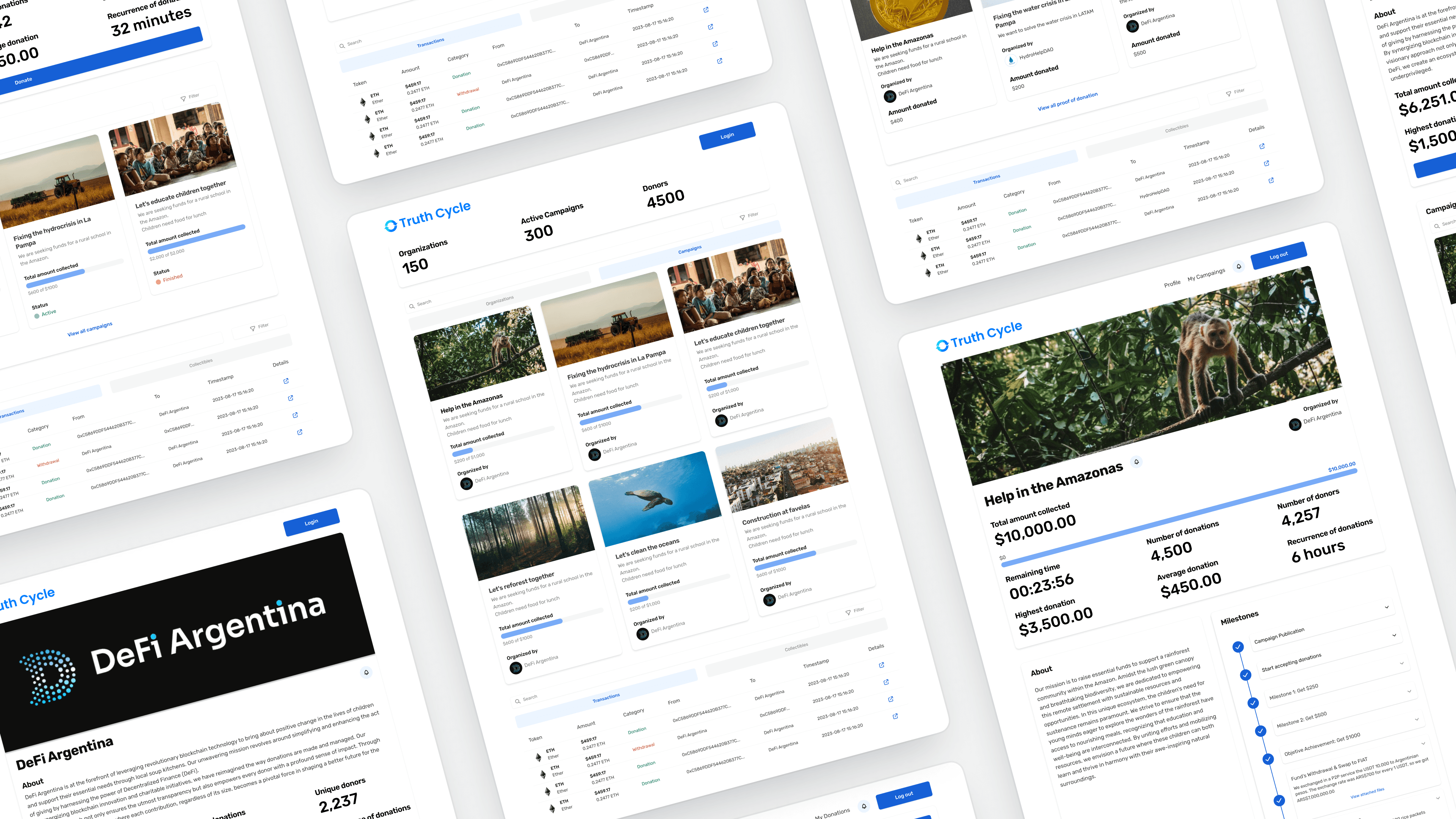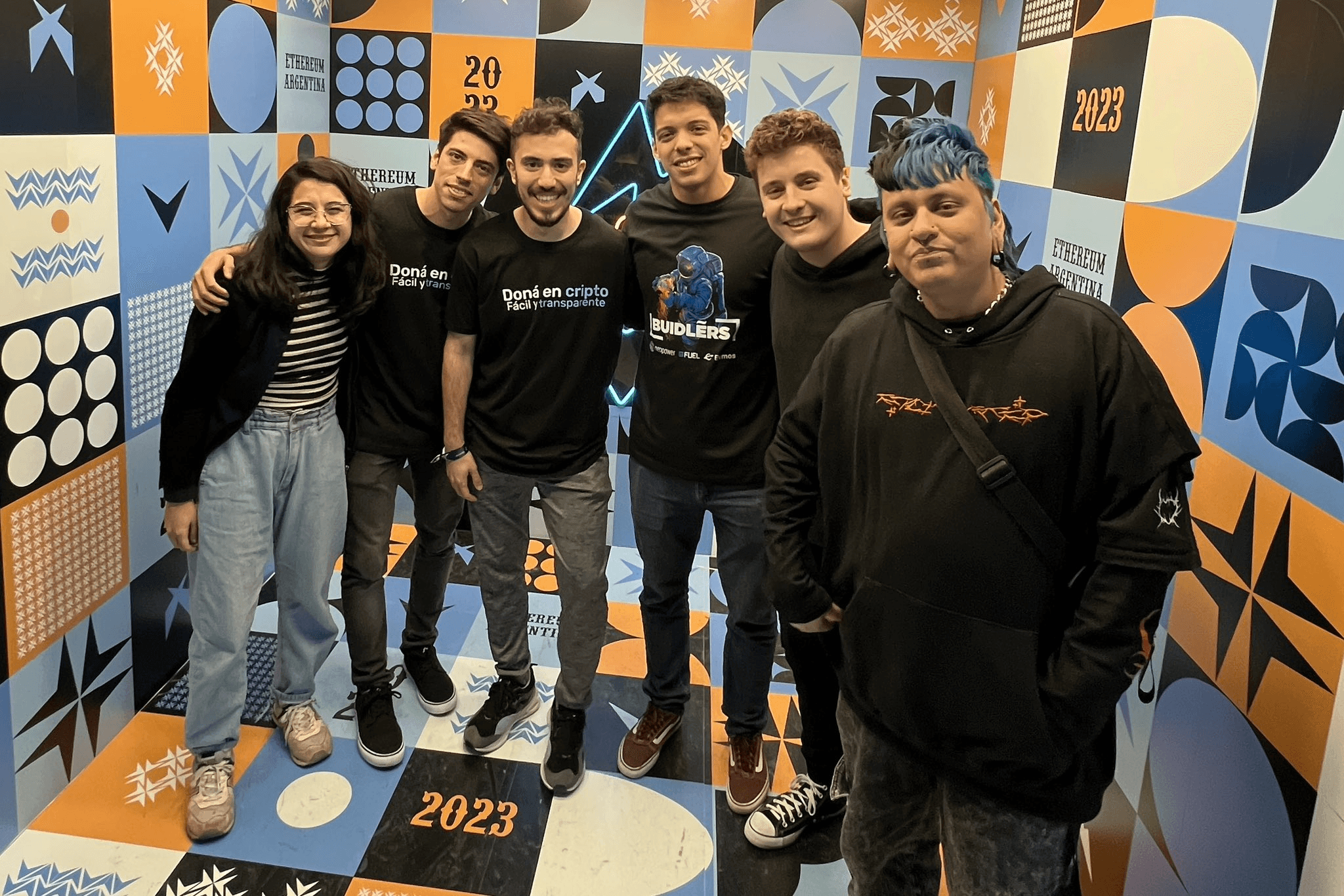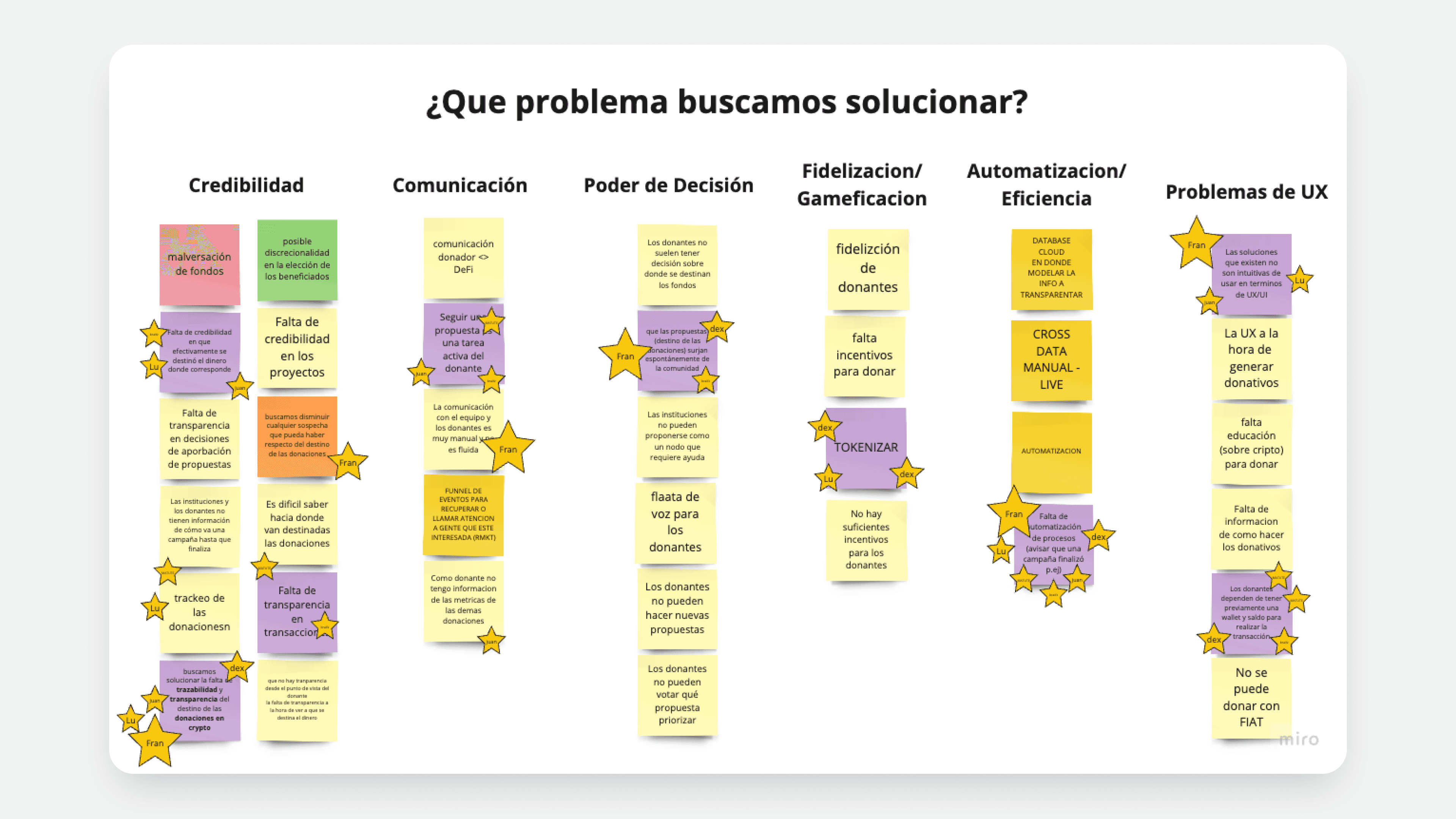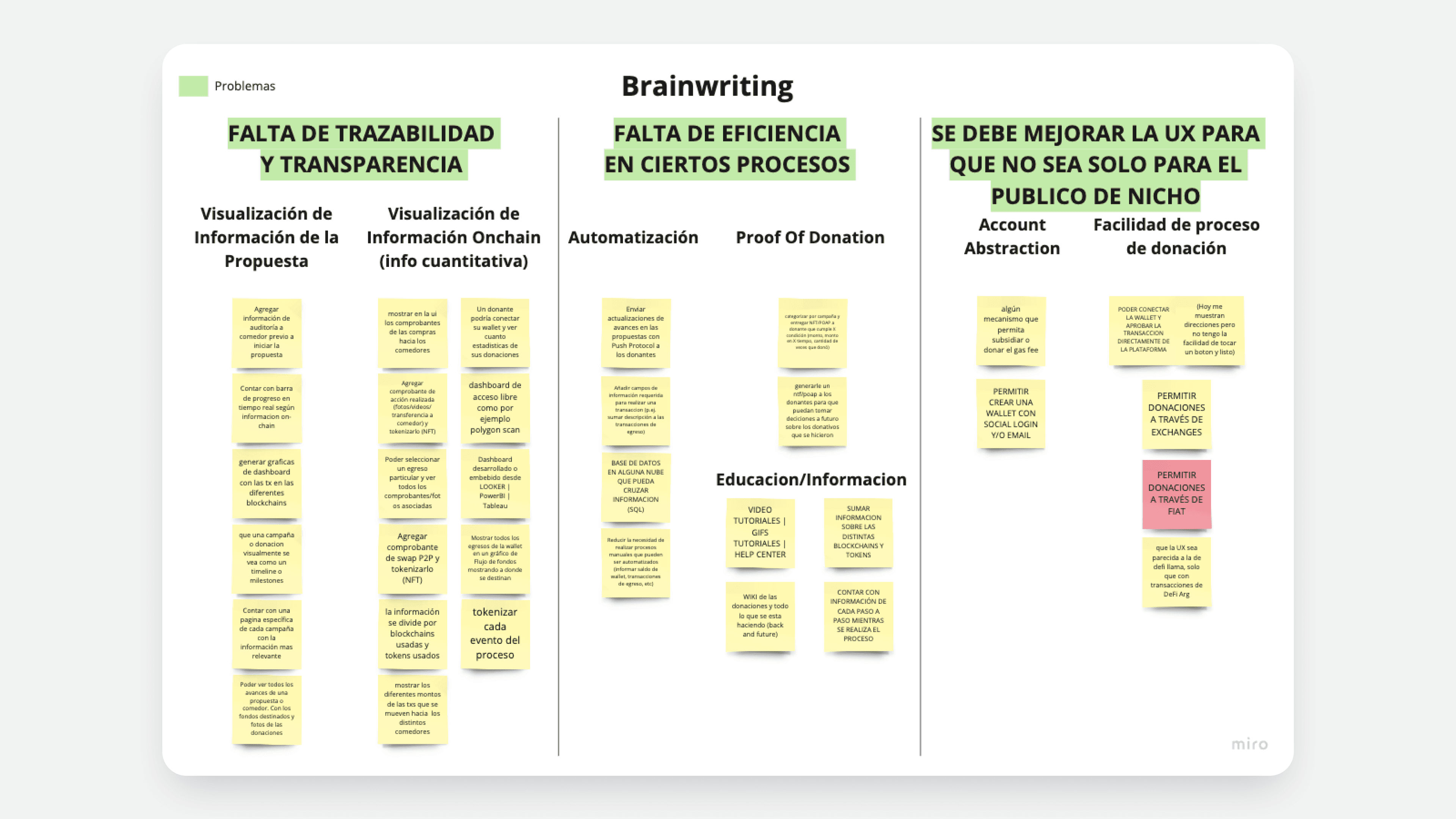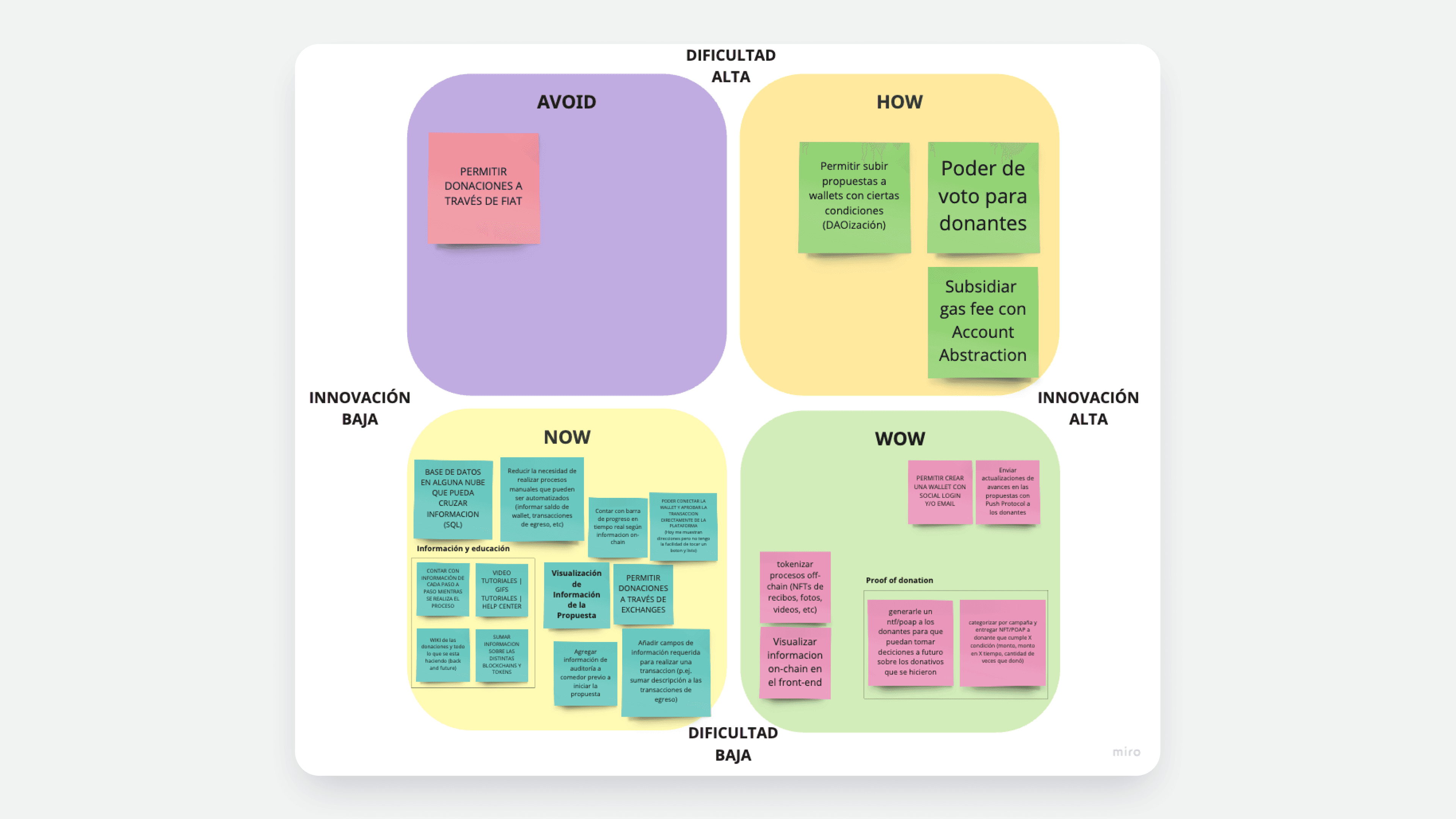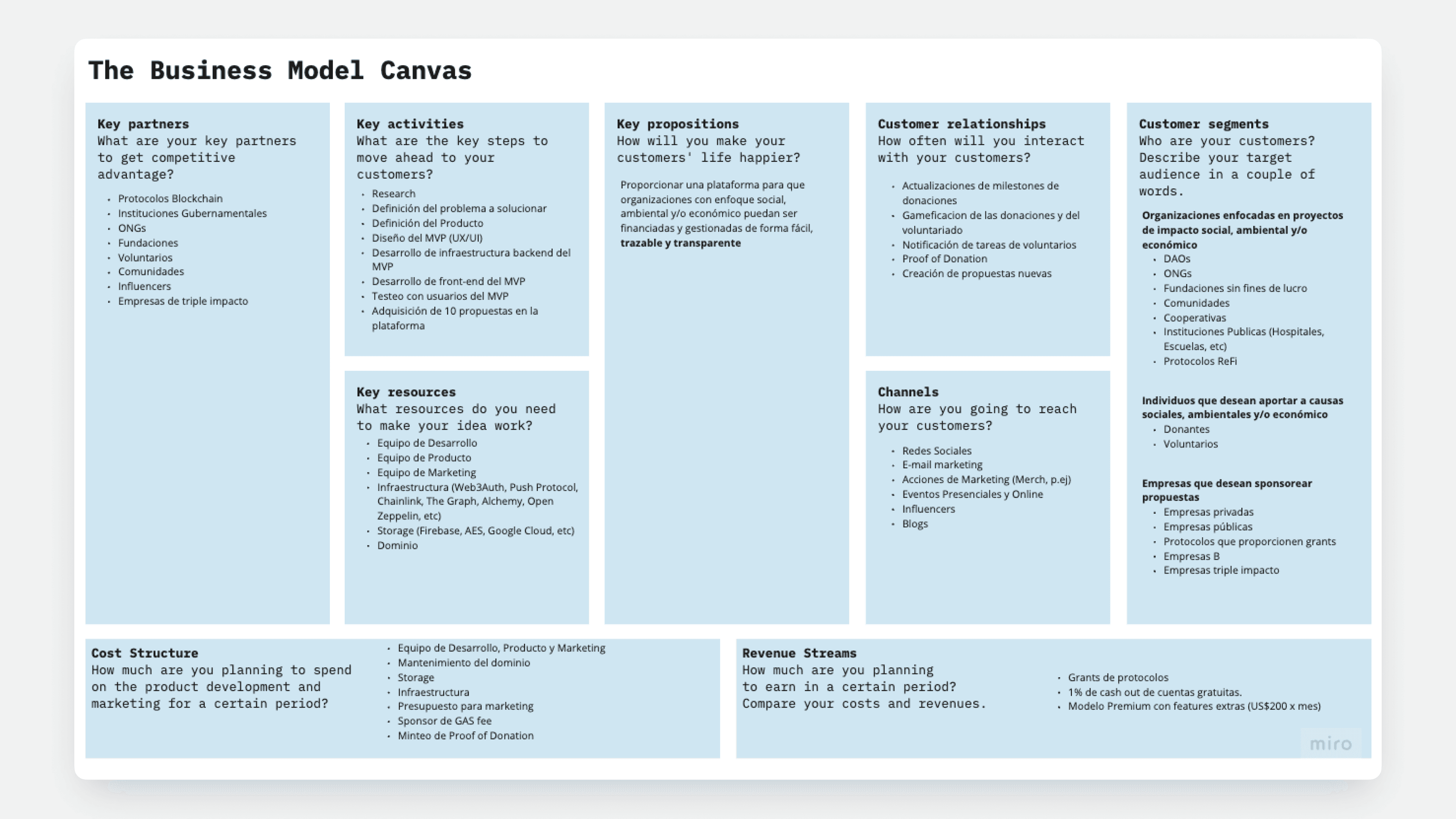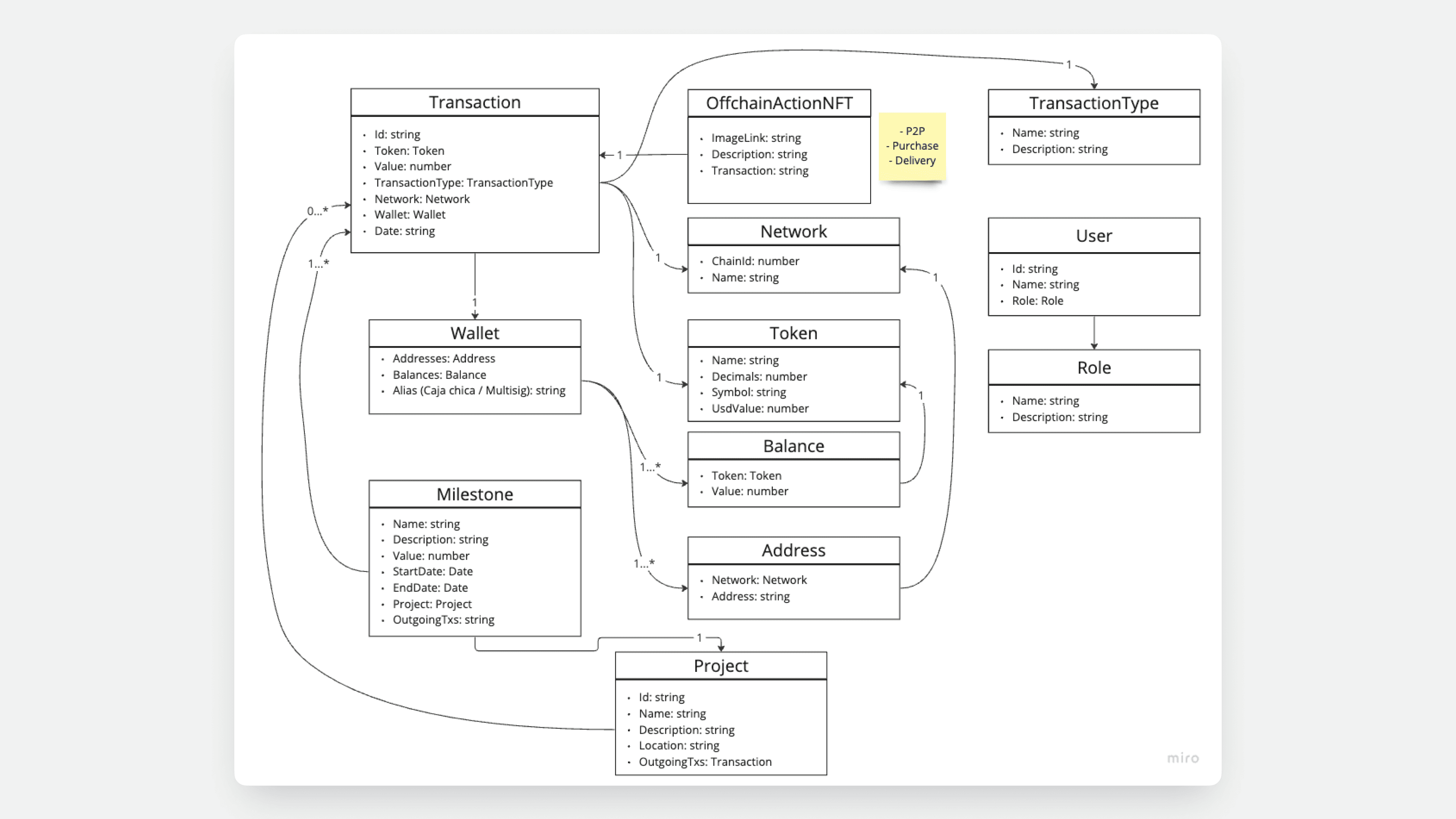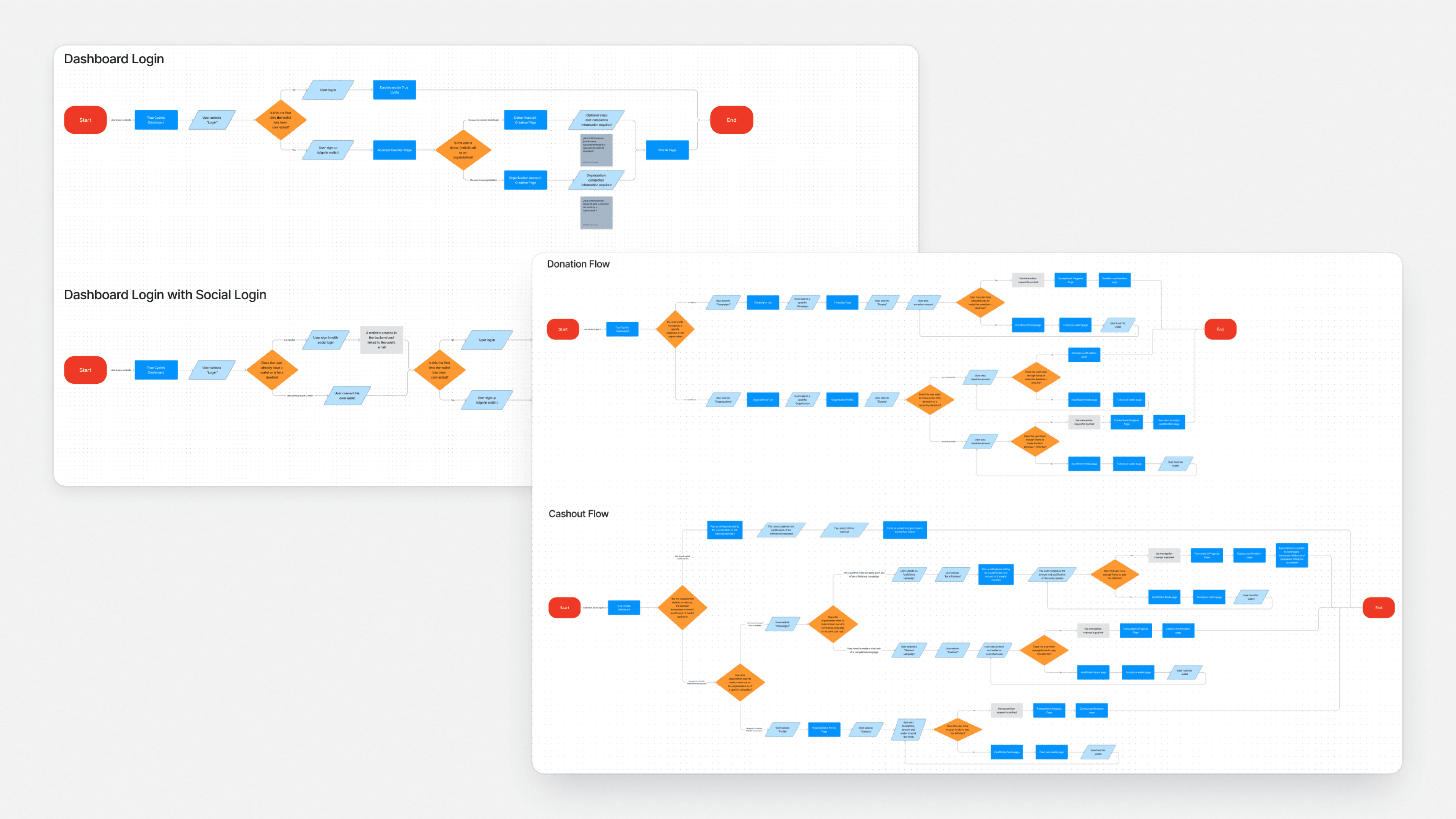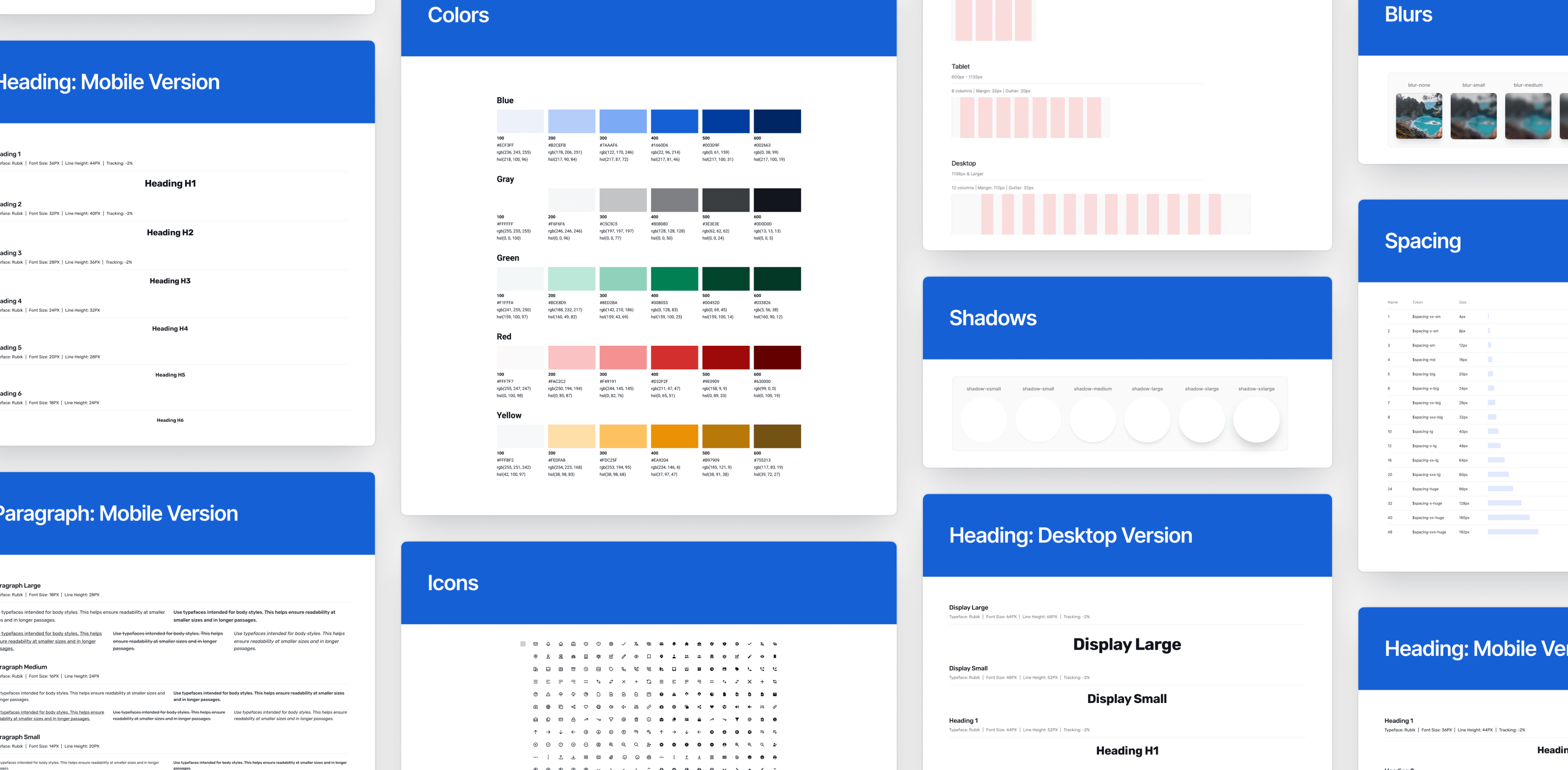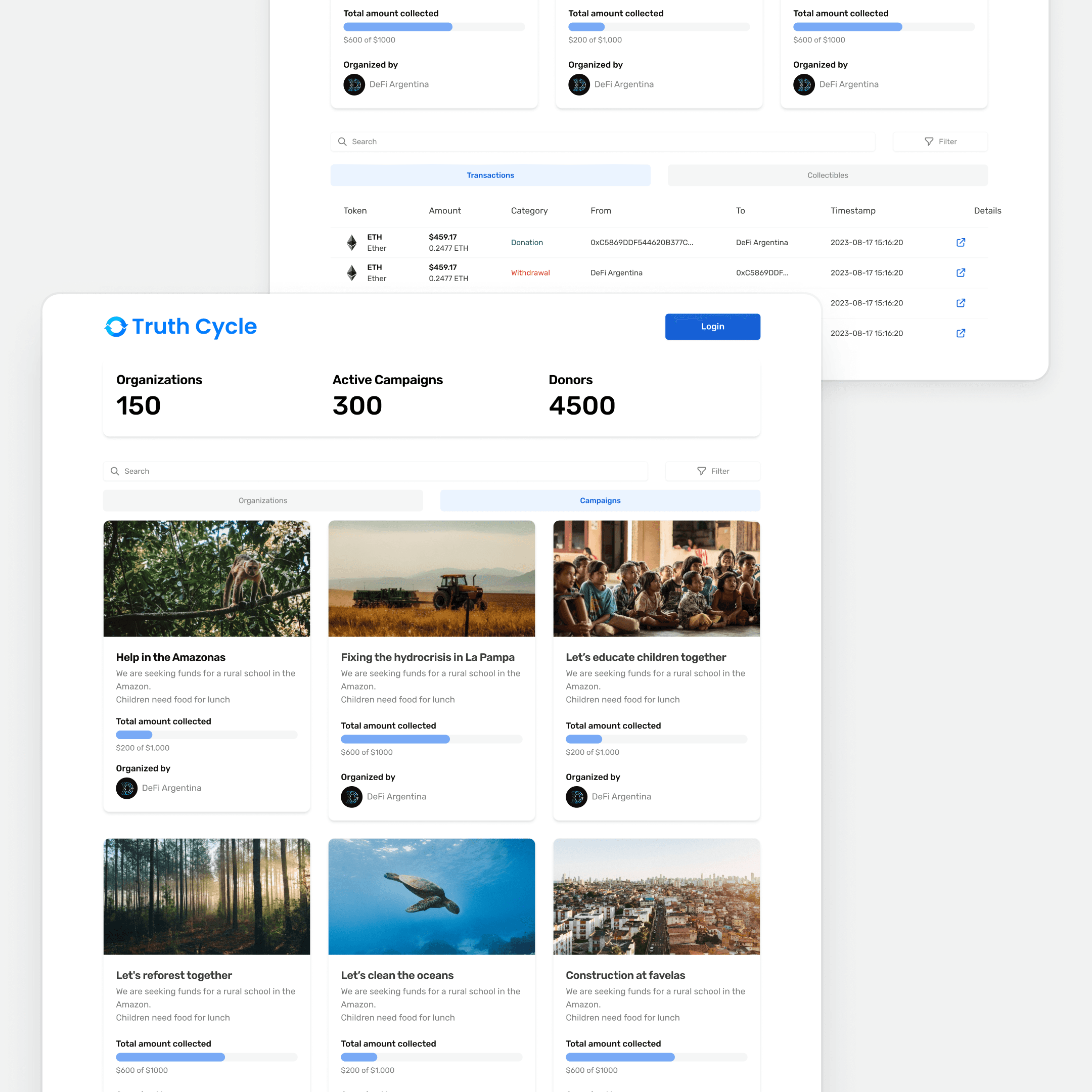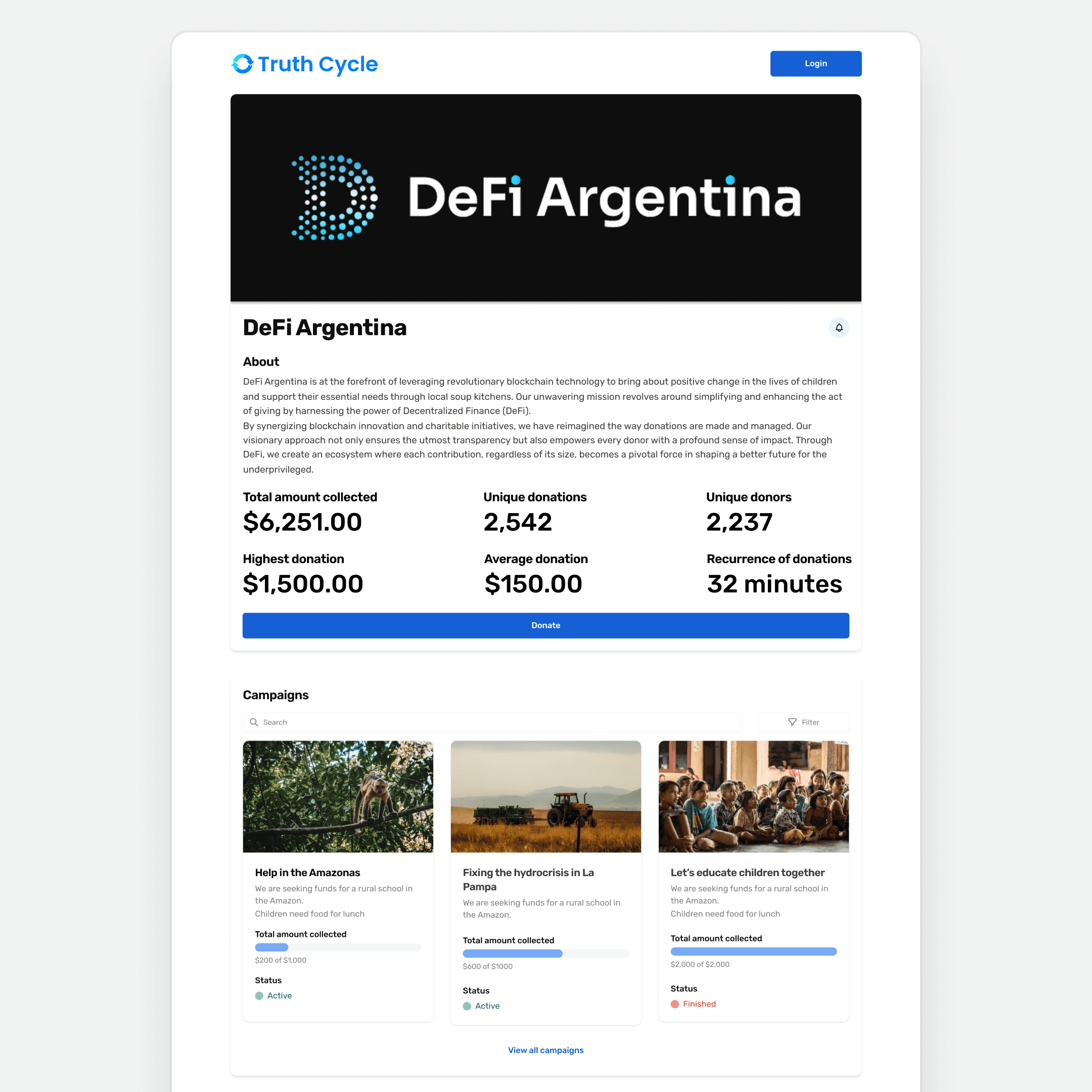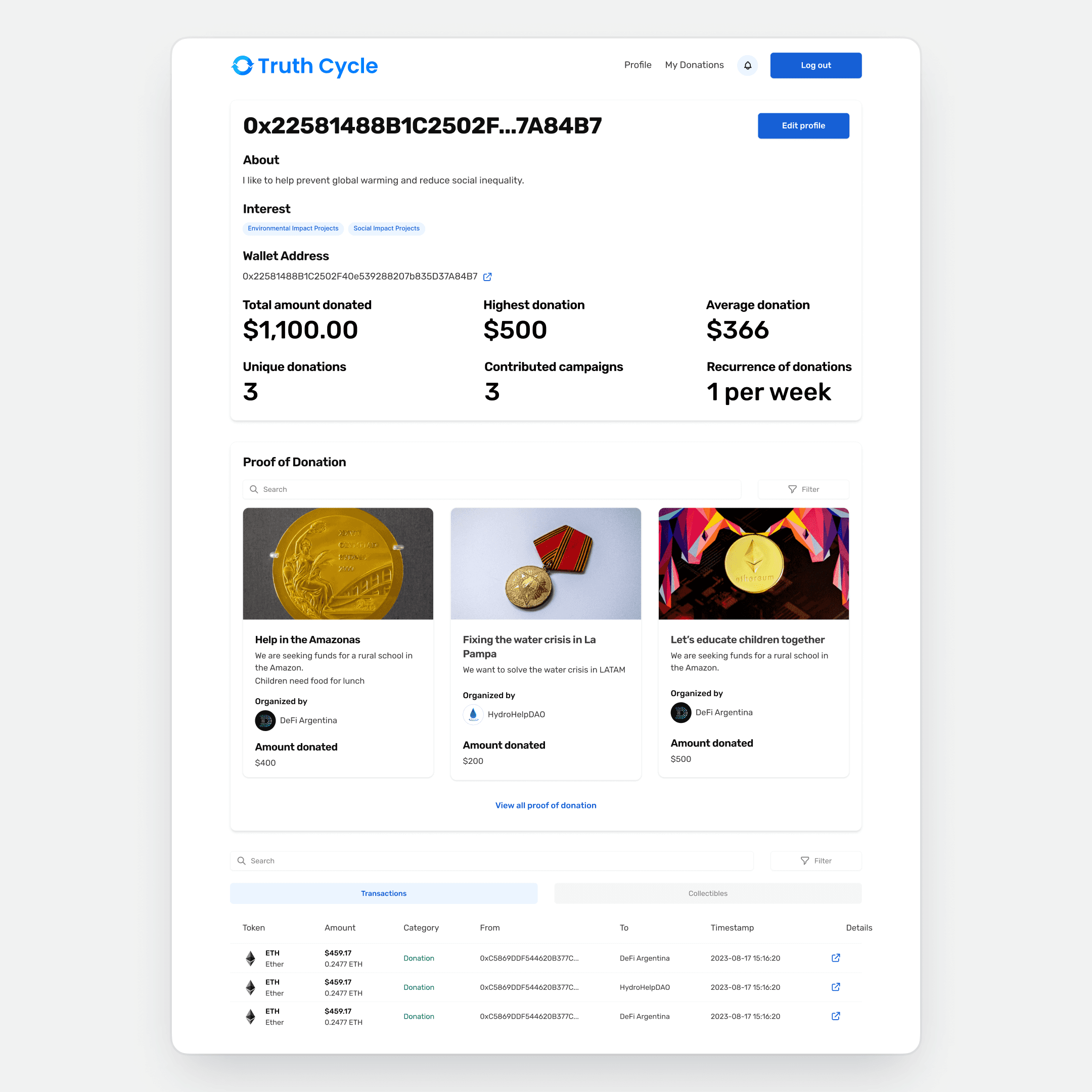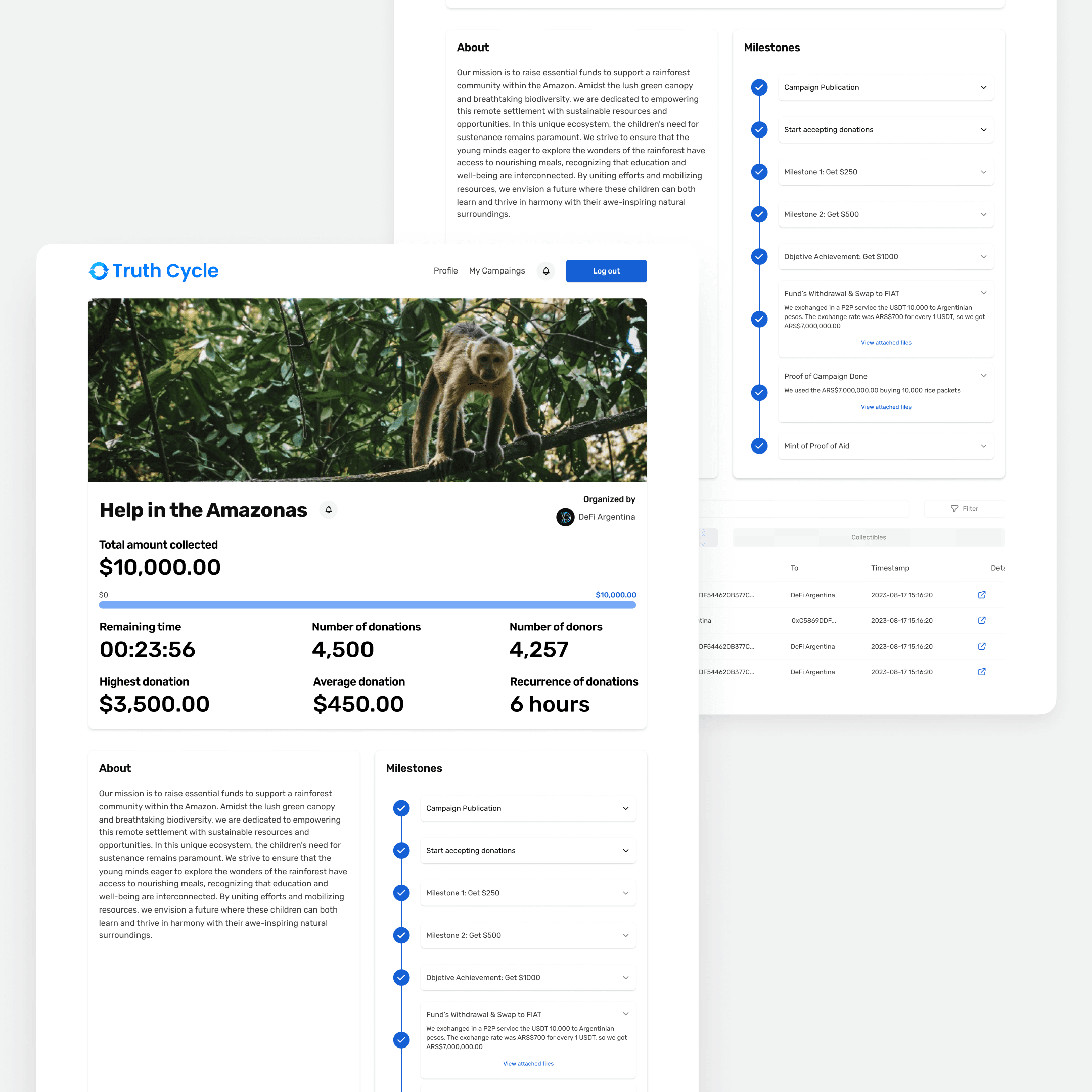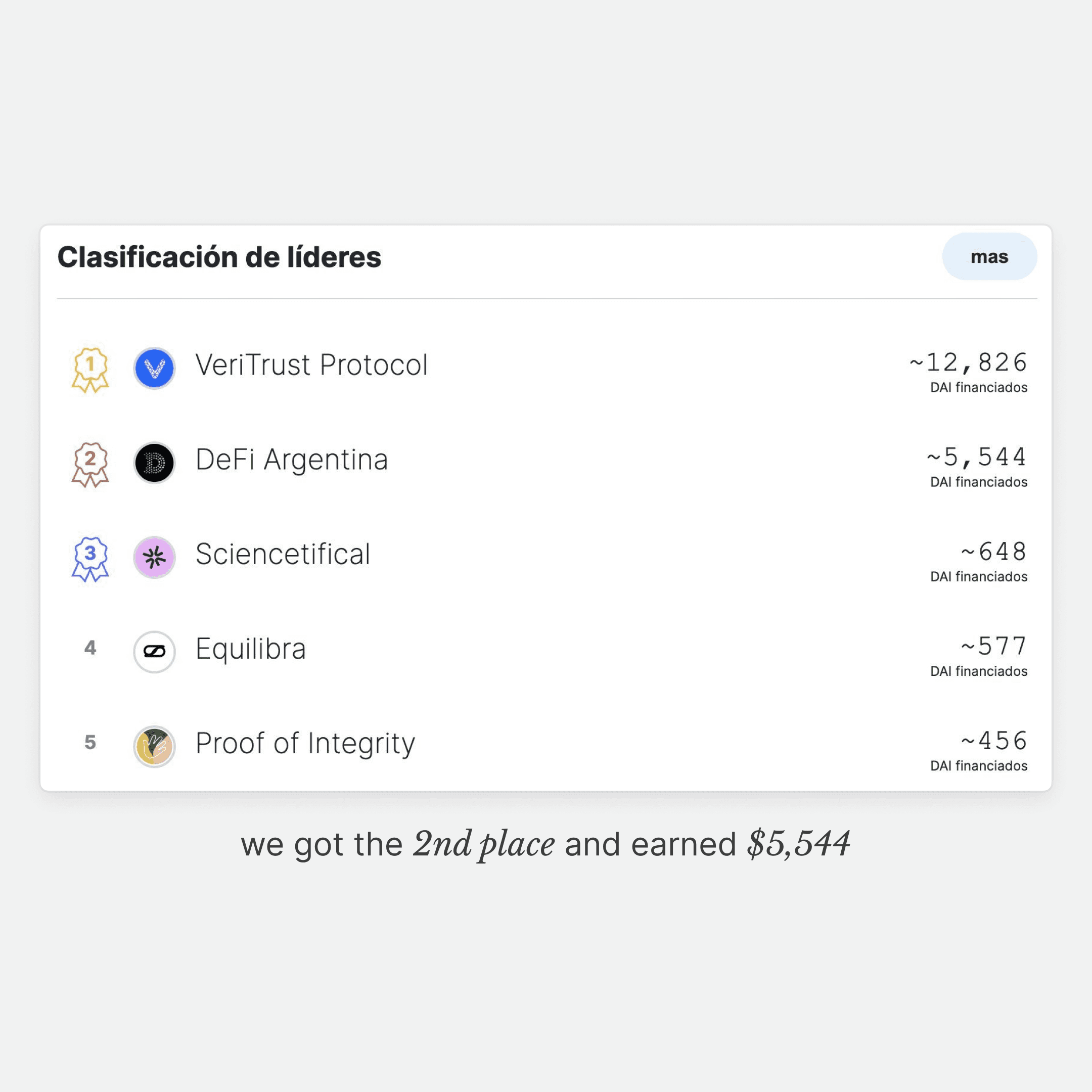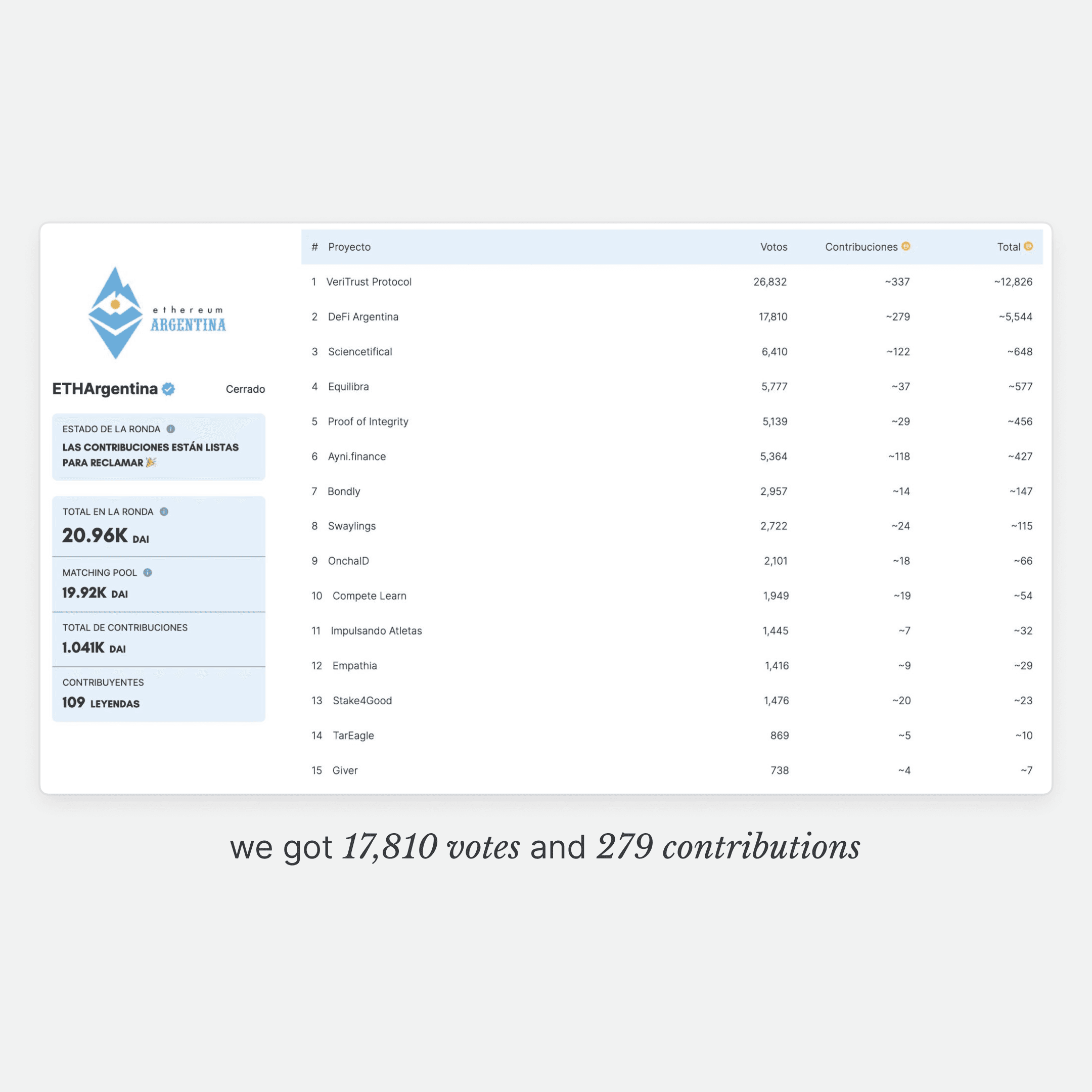A platform to fund and manage non-profit organizations in an easy, traceable and transparent way
This project was carried out within the framework of the Buildathon organized at Ethereum Argentina 2023. It consisted of 1 week online where we carried out different workshops to be able to advance work before the in-person instance, and then we had 2 days to work in person at the Ethereum Argentina venue.
Our primary focus was on addressing the specific needs of 'DeFi Argentina,' a non-profit organization dedicated to collecting crypto donations for child nutrition assistance centers.
The members of this organization shared their reliance on manual processes and the trust factor, particularly concerning fund administration and campaign updates
My Rol
Services
Meet our outstanding team, composed of a Front End Developer, Back End Developer, Smart Contract Developer, Data Engineer, myself as the Product Designer, and a Growth-focused team member
Research
Definition
Visual Design
Pitch
Non-profit organizations often operate with limited transparency, necessitating a heavy reliance on the trust vested in these institutions
Provide a platform that facilitates the financing and management of non-profit organizations in a simple, trackable, and transparent manner.
We held 3 workshops during the week prior to the online hackathon. During these workshops I took the role of facilitator, leading the team in each of the activities.
Brainstorming
In our initial workshop, we conducted a 3-part brainstorming session.
First, we spent 5 minutes with our 6 team members identifying problems within DeFi Argentina (our initial focus).
Upon recognizing common themes among our post-its, we grouped them together, assigning titles to summarize each problem.
To conclude this step, each team member had 3 minutes to distribute 6 votes among the options they found most pertinent (indicated by stars).
In the second stage, we tackled the top 3 issues:
Lack of transparency
Inefficient processes
Need for a more inclusive UX
In a 5-minute brainstorm, we jotted down ideas to address these concerns. Afterward, we categorized and synthesized similar ideas into columns. One idea, receiving fiat donations, was deemed unfeasible within the hackathon's time constraints and complexity (marked in red).
We wrapped up by employing a difficulty and innovation matrix to categorize and prioritize tasks effectively.
This matrix proved invaluable on the first in-person day of the hackathon, ensuring alignment and recalling our discussions on task selection and reasoning.
Business Model Canvas
In the 2nd workshop, we crafted a Business Model Canvas. Although we typically rely on grants and donations as a Public Good, we saw the importance of considering a sustainable product model.
Hence, we envisioned a freemium model that allows all non-profit organizations to access our platform while offering premium features for enhanced capabilities.
Data model
In the final workshop, we constructed a data model, with a key role played by the technical team consisting of a Data Analyst, a front-end developer, and a back-end developer.
This data model significantly enhanced our efficiency during the in-person hackathon days.
In two intensive days of work, our team gathered at the Buenos Aires Convention Center to transform our ideas into a tangible product that we would later pitch to over 30 jurors at one of the region's largest hackathons. As the team's designer, my responsibilities primarily revolved around:
Crafting Userflows
Establishing a Design System
Creating User Interfaces
Developing the Pitch Deck
This dynamic and fast-paced environment allowed us to leverage our collective expertise and bring our vision to life within a tight timeframe.
We finished the hackathon with the design of a platform where non-profit organizations can create their profiles, create campaigns and receive donations in crypto along with the following features:
✓ Connection with self-custodial wallet
✓ Public audit of the campaign roadmap
✓ Tokenization of off-chain processes (Proof of Donation, Proof of Campaign Done)
✓ Onboarding of donors with wallet creation through social login
Although we didn't secure the top prize in our chosen track, we received the honor of being selected to present our project on the Ethereum Argentina 2023 stage. Additionally, we were recognized as one of the 15 public goods projects chosen to participate in Quadratic Funding.
Our journey in the Quadratic Funding competition extended over two weeks, and we proudly secured the 2nd place position. This achievement brought in more than US$5,500, a significant boost that enables the team to continue supporting non-profit organizations in their essential missions
Despite the limited timeframe that constrained our pre-design research, we take pride in our accomplishment of crafting a platform that demystifies cryptocurrency and blockchain for users without prior knowledge. Our solution simplifies the understanding of transfers and the status of non-profit organization campaigns, making this complex world more accessible.
Additionally, this journey provided a unique opportunity to explore and comprehend other public goods projects, a category within Ethereum hackathons that is steadily gaining traction each year, contributing positively to the growth of the crypto ecosystem
Thank you for getting this far
